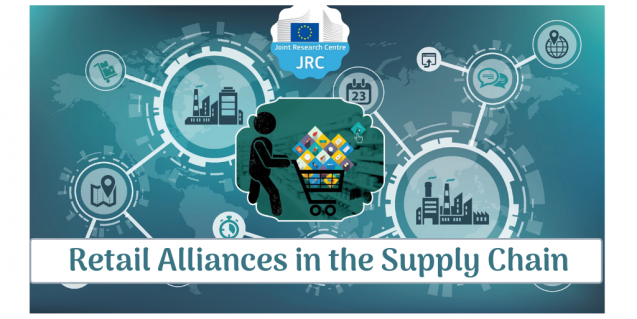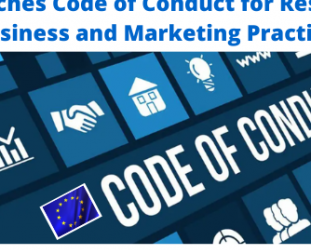Press Release - JRC Report: Retail Alliances
14.05.2020 18:17:03

On 13 May 2020, the Joint Research Center (JRC) of the EU Commission published a long-awaited report on retail alliances in the agri-food supply chain. A culmination of months of thorough research, the report was kicked off by a closed-door Commission workshop in November 2019 dedicated to investigating the nature of retail alliances and, more specifically, their activities and impact on consumers, suppliers and, most importantly, farmers.
Euro Coop welcomes the accurate and unbiased analysis undertaken by the authors, who were tasked with a heavy mission, as well as the appropriate conclusions reached. It is now clear, confirmed and official that any “possible impact of retail alliances on famers is indirect, and thus dependent on the impact on suppliers. Given that several effects of retail alliances on suppliers are ambiguous, so are the possible impacts onto farmers.” All assertions, led by the industry lobby, for additional rules to regulate retail alliances were also calmed, as the report concludes that the existing legal framework is adequately equipped and fit for purpose.
Todor Ivanov, Secretary-General had this to add, “Consumer co-operatives welcome the findings and we are very pleased that the EU Commission has remained the voice of reason in this complex and long process. Retail alliances and joint buying are vital instruments for our members, the majority of whom are national bodies of local and independent co-operatives. Therefore, pooling resources and scaling up is indispensable not only to our economic viability, but to maximizing benefits for the consumer-members and reinvesting our profits in the local communities we serve. The Co-op private label products, often subject to joint purchasing, are the ultimate instrument to guarantee our consumers, who are our owners, goods with high quality and environmental standards at reasonable prices.”
The retail actors on EU-level, despite their differences, were united since the beginning on making clear the numerous advantages of retail alliances, most importantly of which are securing better prices and greater variety for consumers (as a result of economies of scale and more adequate bargaining power when negotiating with multinational suppliers several times their size), overcoming unjust territorial supply constraints which fragment the EU Single Market to the detriment of the consumer, and benefiting suppliers with access to international markets.
Ivanov added: “Concerning farmers, consumer co-operatives enjoy wonderful partnerships with local producers. Our relations are long-term and based on trust and mutual support. True, we have our differences, but when it matters most, our members show loyalty, whether it is guaranteeing higher milk prices or facilitating access for local produce sold in our stores. After all, being co-operative means basing your actions not on profit, but on principles and values.”
Latest Enterprises Policy news

Launch: EU Code of Conduct
On 26 January, Euro Coop, Independent Retail Europe and EuroCommerce joined the EU...
Latest Enterprises Policy stories

Coop Norway’s discount chain, Extra, receives prize for healthy marketing and celebrates with additional discount on fruit and vegs
Coop Norway’s discount chain, Extra, has been recognized for its commitment to healthier...

Coop Private Label Products Shine at the 2025 European Private Label Awards
The 2025 European Private Label Awards have celebrated the achievements in store brand...

Empowering Consumers for a Sustainable Future: An Interview with HISPACOOP for World Consumer Day
On the occasion of World Consumer Day, we highlight the essential role of consumer...

